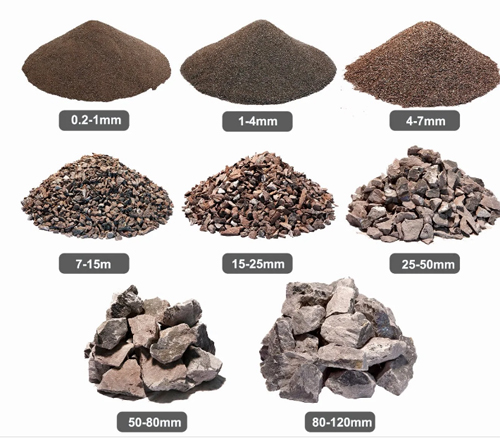
In the intricate world of steel production, the pursuit of quality and performance is unceasing. One pivotal aspect in achieving this objective is desulfurization, a process designed to expel the detrimental effects of sulfur from molten steel. A remarkable technique that has garnered attention for its efficacy is the utilization of calcium. This article delves into the realm of calcium's role in steel desulfurization, exploring its mechanisms, benefits, and implications for the steel industry.
Desulfurization holds immense significance in steelmaking, as sulfur impurities can drastically degrade steel's mechanical properties. The incorporation of calcium during this process introduces a dynamic alteration in the steel's composition. Calcium, when introduced to the molten steel, reacts with sulfur to form calcium sulfide (CaS), which possesses a higher melting point compared to pure sulfur. This distinct advantage enables the calcium sulfide to segregate and solidify, facilitating its easy removal from the molten steel. Consequently, the process of calcium-induced desulfurization substantially reduces sulfur content in the steel and subsequently enhances its mechanical properties.
Elevated Steel Quality:
Sulfur, if left unchecked, can render steel brittle and vulnerable to fractures. Calcium desulfurization ensures the removal of sulfur, paving the way for stronger, more ductile, and resilient steel. This steel quality is pivotal in applications requiring exceptional strength and durability, such as structural components and machinery parts.
Enhanced Weldability:
Sulfur-laden steel exhibits poor weldability due to the formation of brittle sulfide inclusions at the weld interface. By reducing sulfur content through calcium treatment, the propensity for these inclusions to form diminishes, rendering the steel more amenable to welding processes. This attribute expands the steel's applicability to industries where welding is an integral part of the manufacturing process.
Alleviated Environmental Impact:
Traditional methods of desulfurization often involve the usage of energy-intensive materials or processes. Calcium treatment, however, offers a more environmentally friendly approach. The process is energy-efficient and does not introduce additional harmful byproducts, aligning with the industry's commitment to sustainability and eco-conscious practices.

While the utilization of calcium for steel desulfurization yields numerous advantages, certain challenges and considerations warrant attention:
Optimal Calcium Dosage:
The precise dosage of calcium is a critical factor. Excessive calcium addition can lead to calcium loss through slag formation, impacting its efficacy. Striking the ideal balance between effective desulfurization and calcium retention is essential.
Alloying Complexity:
The introduction of calcium can influence the behavior of other alloying elements within the steel matrix. Meticulous control of the alloying process is imperative to uphold the steel's intended characteristics.
Process Integration:
Incorporating calcium desulfurization seamlessly into existing steelmaking processes requires thorough planning and adjustments. Ensuring consistent results demands integration with precision.
In the quest for superior steel quality, the role of calcium in desulfurization shines brightly. Its profound impact on reducing sulfur content, enhancing mechanical properties, and aligning with sustainable practices has propelled it to the forefront of steelmaking innovation. By effectively eliminating sulfur-induced vulnerabilities and bolstering steel's resilience, calcium desulfurization emerges as a critical technique in crafting high-performance steel products. As the steel industry advances, the utilization of calcium stands as a testament to the ongoing commitment to excellence and evolution.

Write a Message